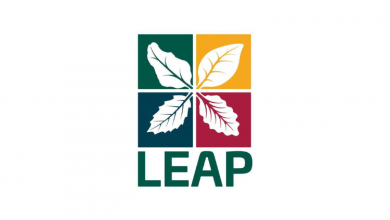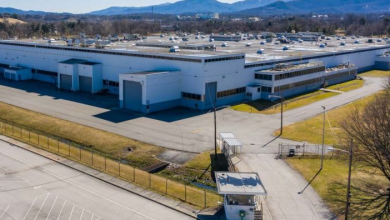Roanoke Robocallers To Pay $300,000 Back To Consumers

The State of Vrginia has reached a settlement with two Roanoke-based telemarketing companies, and Roanoke resident Bryant Cass, for illegal robocalling and deceptive sales practices.
The State Attorney General filed suit against the two companies and Cass last summer, alleging that they made hundreds of thousands of unsolicited robocalls nationwide pitching car selling services to people who listed cars for sale on Craigslist, Autotrader.com, or similar sites.
As part of the settlement agreement, Cass will pay $300,000 in restitution that will go back to consumers who were affected by his telemarketing, sales or refund practices. Additionally, Cass has been banned from engaging or participating in telephone solicitations for five years and has been permanently banned from illegal telemarketing and robocalling. The companies have ceased operations and are no longer in business.
“I’m really pleased my team and I were able to shut down this illegal robocall operation and help consumers get their money back from this scheme,” said Attorney General Herring. “Unfortunately, robocalls continue to be an everyday occurrence for most Virginians, and many times they can not only be annoying but dangerous, potentially scamming people out of hundreds or thousands of dollars. I will continue to do everything I can to protect Virginia consumers and find ways to stop illegal robocallers, especially those operating in Virginia.”
Suits were filed against Adventis Inc., Skyline Metrics LLC, which operated as OnceDriven, Longwood Industries, The Big Lot!, Autohopper, and Auto Marketing Systems, and Cass in June 2019 alleging that the businesses used automated equipment to pull telephone numbers from websites, make hundreds of calls a day – even to numbers on the National Do Not Call Registry – and leave prerecorded voicemails in which Cass used fake names like “Peyton” or “Brian” to pitch car selling services for a “small fee” with a “money back guarantee.” If people called back, they reached a telemarketing boiler room in downtown Roanoke, where trained salespeople worked off a scripted pitch to make sales.
Attorney General Herring also alleged that, from 2014 to 2017 alone, Cass and his companies made 586,870 unsolicited telemarketing calls just to Virginia area codes.
The Complaint also alleged that the companies enticed people to pay $289 for online car sales services through deceptive claims like these:
- We have “buyers in your area” or buyers looking for “vehicles like yours,” regardless of whether the companies actually had such buyers
- We also pre-screen buyers for financing to “make sure they are serious and they have a plan for paying you.” In fact, there was no such pre-screening
- “We have a Money Back Guarantee!” If you sell your car on your own, “you’re eligible for a refund in the first 45 days.” In fact, refunds were hard to get, and Mr. Cass instructed employees to limit the number of refunds given, even to customers who took all the steps to qualify for a refund
Under the terms of the settlement, Adventis Inc., Skyline Metrics LLC, and Bryant Cass agreed to the following:
- Restitution totaling $300,000 to be paid to consumers affected by the telemarketing, sales, or refund practices alleged in the Complaint
- Civil penalties and attorneys’ fees totaling $8,708.02
- A permanent ban from illegal telemarketing and robocalling, including bans on using automatic dialing systems or pre-recorded voice messages, calling numbers on the do-not-call registry, failing to honor do-not-call requests, failing to include a three-day right to cancel, and from violating the Virginia Consumer Protection Act or any of the federal or state telemarketing laws the Attorney General enforces. These prohibitions apply to all calls, not just calls to Virginians
- Cass is barred from engaging in or participating in telephone solicitations or assisting others in engaging in telephone solicitations for a five-year period
The state’s lawsuit was part of “Operation Call it Quits”, a coordinated federal and state law enforcement crackdown on robocallers and illegal telemarketers. This major crackdown on illegal robocalls included 94 actions targeting operations around the country responsible for more than one billion calls pitching a variety of products and services, including credit card interest rate reduction services, money-making opportunities, and medical alert systems.
In 2019 alone, Virginians received at least 1.56 billion robocalls. According to the Federal Trade Commission (FTC), Virginia was the 8th highest state in the nation for Do Not Call Registry complaints with 178,717 complaints in 2019. Additionally, Virginians made more than 125,000 complaints to the FTC about robocalls alone, up from more than 118,000 complaints in 2018. Americans received at least 58.5 billion robocalls in 2019, an increase of 22% from 47.8 billion robocalls in 2018.
Virginia’s Consumer Protection Section has recovered more than $323 million in relief for consumers and payments from violators. The Section has transferred more than $55 million to the Commonwealth’s General Fund, and following a major reorganization and enhancement in 2016 the Section has been even more effective in fighting for Virginia consumers.
The following tips are given for Virginians to help manage robocalls:
- Don’t answer calls from numbers you do not recognize
- If it’s an unwanted robocall, hang up
- Don’t press any numbers. This could lead to even more calls, even if the robocall claims you can press 1 to speak to a live operator or press a number to get your number off the calling list
- Register your home and mobile phone numbers on the National Do Not Call Registry at www.donotcall.gov or by calling 1-888-382-1222 from the number you wish to register
- Report robocalls to the National Do Not Call Registry at www.donotcall.gov. Federal and state law enforcement officials have access to the complaints filed through the National Do Not Call Registry
- Contact your phone service provider and ask about available robocall-blocking technology
- Consider using mobile apps or other features that may already be built into your phone to block robocalls




